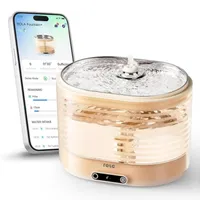Do kittens drink water? A vet answers
A vet reveals how much water kittens should drink – and when you should start to worry
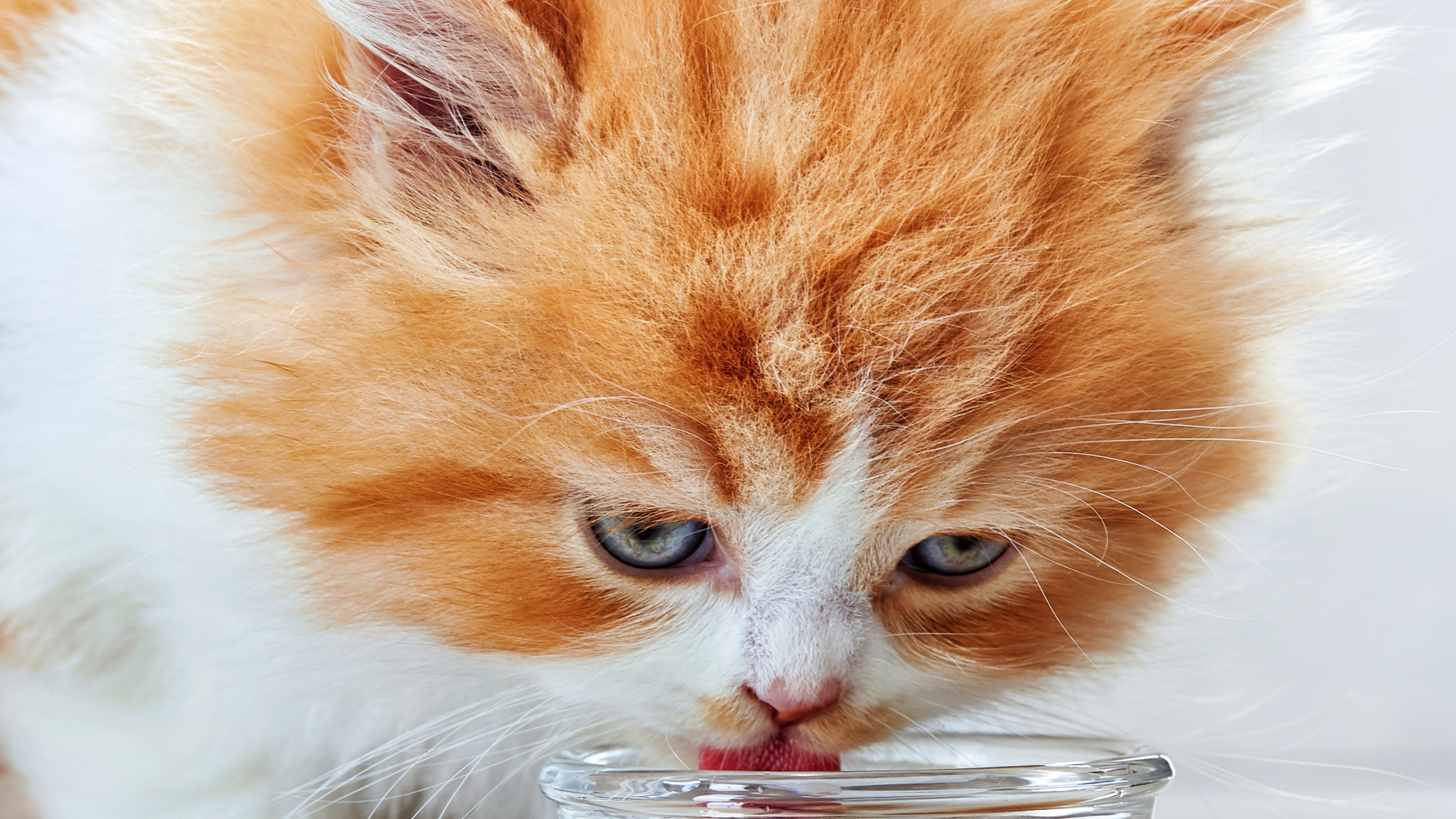
Get the best advice, tips and top tech for your beloved Pets
You are now subscribed
Your newsletter sign-up was successful
Do kittens drink water? As a vet, this is a question I get asked very frequently –especially by new kitten owners keen to do the right thing for their furry friends. The truth is, while water is vital for all cats, the way kittens hydrate can vary depending on their age, diet, and environment.
I have been a vet for nearly 14 years, and during this time, I’ve helped many pet parents navigate the ins and outs of kitten care, including feeding, hydration, and health checks. Helping people understand what’s normal behavior in their kittens – and what’s not – is so important to ensure pets are getting the best care at home.
If you're looking to encourage your kitten to drink more water, I recommend trying one of the best pet water fountains, as many cats prefer running water to a stagnant bowl. But more on that shortly! First, let’s explore how kittens drink and how much water is considered normal.
Do kittens drink water?
Yes, kittens absolutely do drink water – but the amount they need and the way they access it depends on their age and whether they're still nursing from their mother.
In the first few weeks of life, kittens get all their hydration from their mother’s milk (or a suitable milk replacer if they’re being hand-reared). During this time, you won’t see them drinking water – their tiny bodies are completely dependent on milk for both nutrition and fluids.
Once kittens start weaning at around four weeks of age, their water intake gradually increases as their reliance on milk decreases. By the time they're six to eight weeks old and eating solid food, they should be offered fresh water at all times.
Kittens aged six to 12 weeks typically drink around 60–100 ml of water per kg of body weight per day – though this varies depending on their diet (wet vs dry food), activity level, and environmental temperature.
Get the best advice, tips and top tech for your beloved Pets
To put this in perspective: a 1kg kitten might drink roughly 60–100 ml per day if they’re on a dry diet, but much less if they’re eating wet food, which is about 70–80% water already. So don’t be surprised if your kitten drinks very little from a bowl – they might just be getting plenty of fluid from their food.
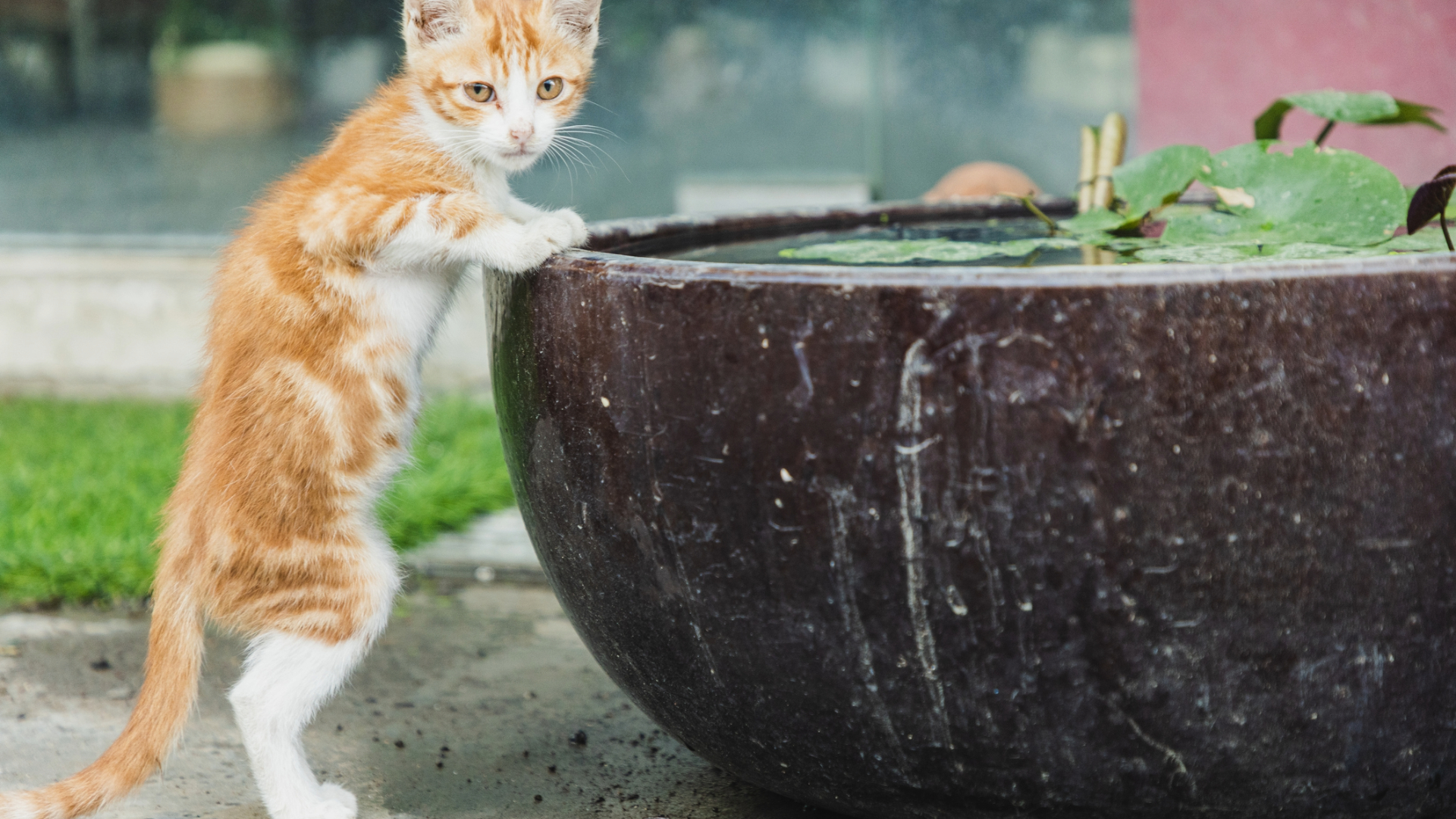
How do I encourage my kitten to drink water?
Some kittens are naturally curious and will lap up water from any bowl they can find. Others can be a bit fussier, especially if the bowl is in a noisy area or if the water isn’t refreshed regularly.
Here are a few vet-approved ways to encourage your kitten to drink more water:
- Use a pet fountain: Many cats (including kittens) prefer running water. Pet fountains keep the water fresh and moving, which can be more appealing to your kitten.
- Offer multiple bowls: Place several water bowls around the house so your kitten always has access to water, no matter where they’re playing or napping.
- Choose the right bowl: Shallow ceramic or glass bowls are best, as some kittens dislike the smell or taste of plastic.
- Keep water away from food and litter: Cats instinctively prefer to drink away from where they eat or toilet. This is a behavior rooted in their wild ancestors and can affect their willingness to drink.
- Try adding water to food: If your kitten is on a wet food diet, you can add a little more water to the food to help boost hydration.
If your kitten isn’t drinking at all, it’s important not to panic – especially if they’re eating wet food and otherwise behaving normally. But if they seem lethargic, have dry gums, or are refusing food too, then it’s time to contact your vet.
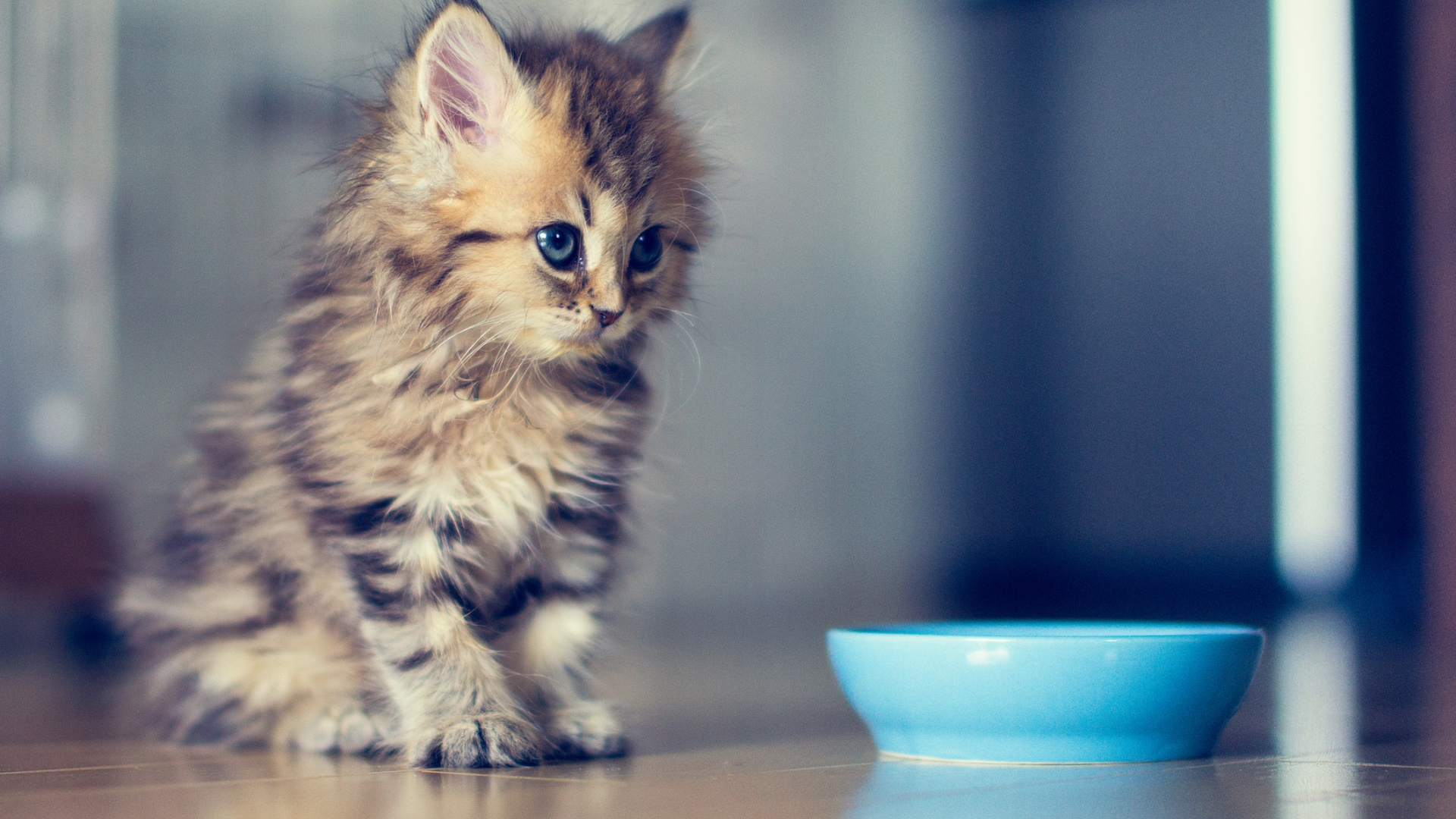
How to tell if a kitten is dehydrated?
Dehydration in kittens can happen quickly, especially if they’ve had vomiting or diarrhea, are off their food, or are overheating. It’s important to recognize the signs early, as dehydration can be life-threatening in very young animals.
Look out for the following signs of dehydration:
- Lethargy or weakness
- Dry, tacky gums
- Sunken eyes
- Loss of skin elasticity – gently pinch the skin between the shoulder blades; if it doesn’t spring back immediately, your kitten may be dehydrated
- Poor appetite
- Panting or rapid breathing
If you notice any of these symptoms, especially in a kitten under 12 weeks old, it’s crucial to seek veterinary attention straight away. Kittens are less able to compensate for fluid loss than adult cats, and even mild dehydration can escalate quickly.
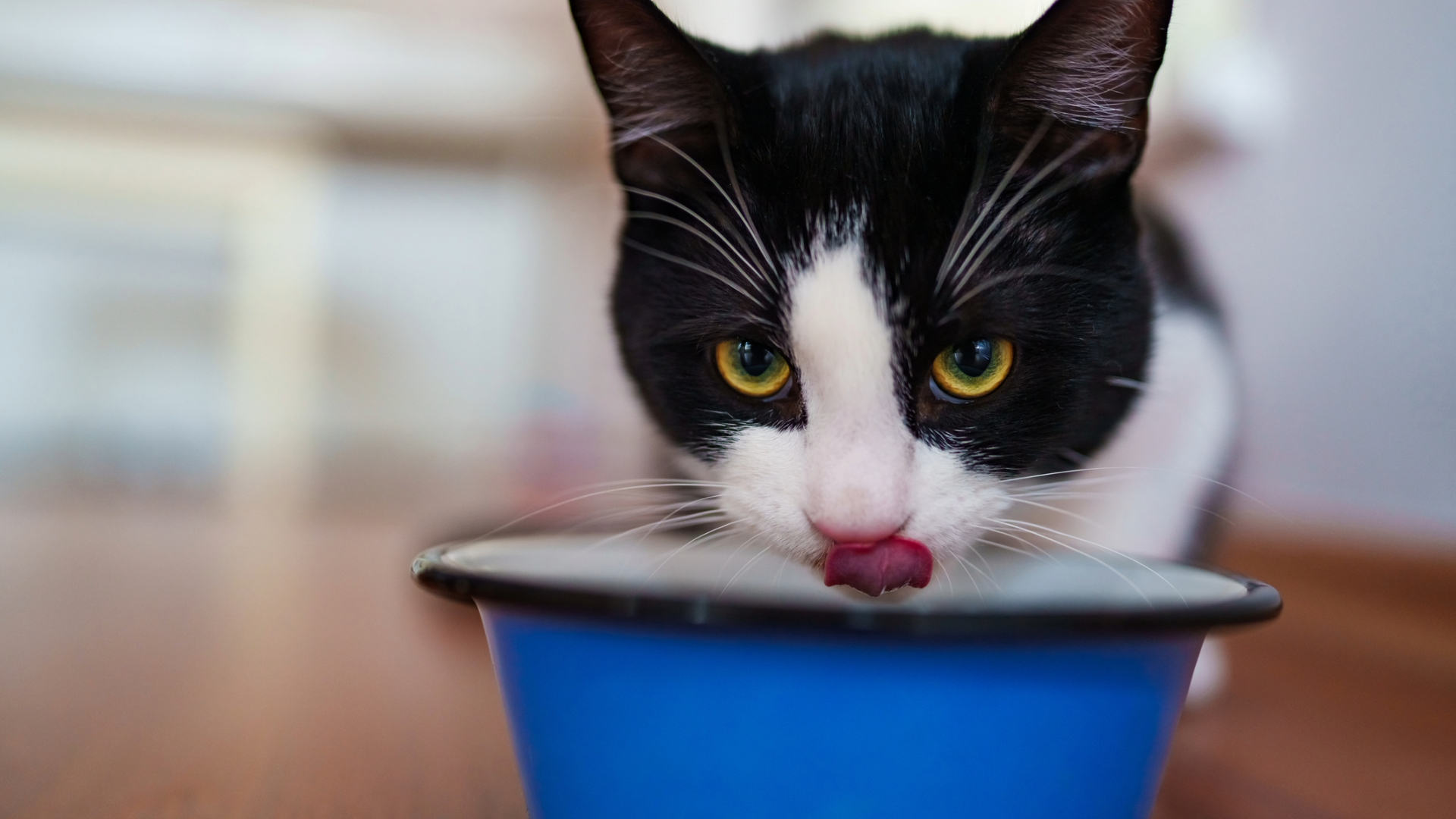
Should you leave water out for a kitten?
Yes, fresh, clean water should be available to your kitten at all times, including overnight when you’re not there to supervise. Even if your kitten is on a wet food diet and doesn’t seem to drink much, they still need access to water in case they feel thirsty.
Make sure the bowl is clean, ideally washed daily, and topped up with fresh water at least once a day, more often if it's hot or your kitten plays with the bowl! For very young or clumsy kittens, use a sturdy, shallow dish to avoid spills or tipping.
If you’re crate-training or confining your kitten overnight, ensure water is available in a spill-proof bowl. You can even use a fountain if you want to encourage drinking and prevent stagnation.
Remember: establishing good drinking habits early in life helps support kidney and urinary health later on, so it’s well worth the effort now.
Enabot ROLA Smart Pet Water Fountain | Amazon
This smart fountain can monitor your kitten's water intake, notifying you when it needs cleaning or topping up. Our tester, Adam, says this was "reassuring" for keeping an eye on his cat's drinking habits.
So, do kittens drink water? Absolutely, and it’s vital for their growth and well-being. As they wean and move onto solid food, access to fresh, clean water becomes increasingly important. Whether it’s through bowls or fountains, making sure your kitten stays hydrated is one of the best ways you can support their health at home.
Always monitor your kitten’s drinking habits and body language. If you’re ever unsure, it’s never wrong to check in with your vet – we’re here to help you raise a happy, healthy feline friend from day one.
Read next: Why is my cat drinking a lot of water?
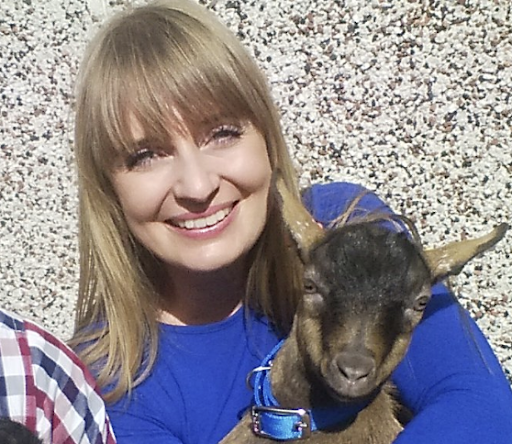
Emma graduated from the Royal Vet College in London in 2011. She has a keen interest in surgery and went on to do a postgraduate certificate in small animal surgery and was then awarded advanced practitioner status in the same discipline.
Edited by Megan Milstead.
This page was last updated in June 2025 by Emma Chandley.
Emma Chandley is a vet with 14 years of experience and has a keen interest in surgery. After graduating from the Royal Vet College in London in 2011, she achieved a postgraduate certificate in small animal surgery from the British Small Animal Veterinary Association and Nottingham Trent University. She was then awarded advanced practitioner status in the same discipline by The Royal College of Veterinary Surgeons. She has a black Labrador and two pygmy goats at home.
